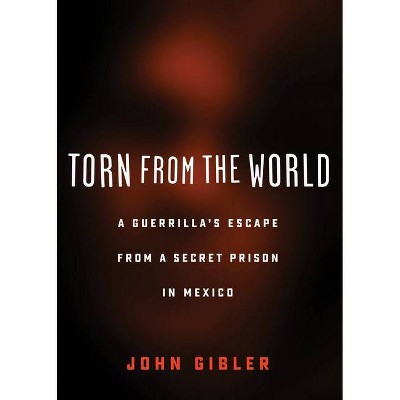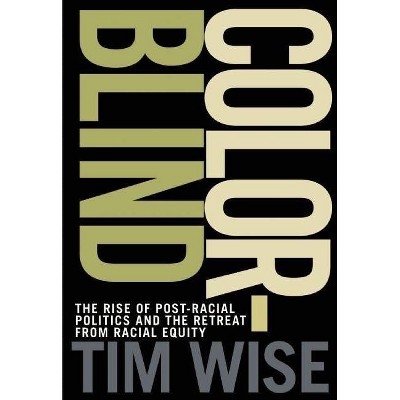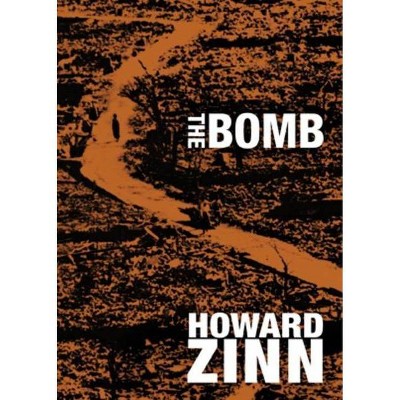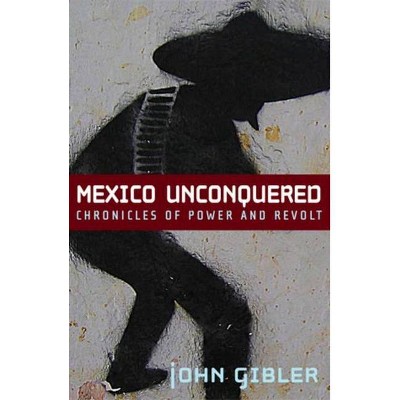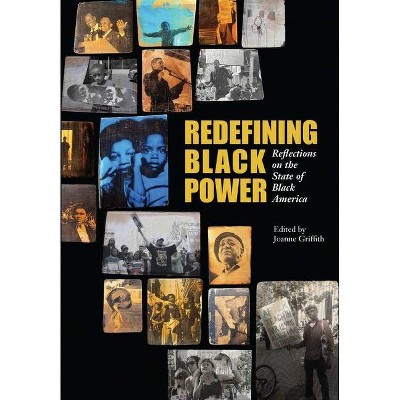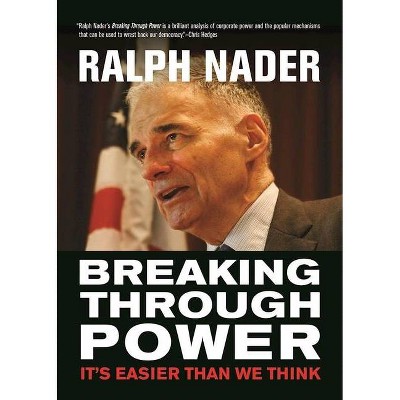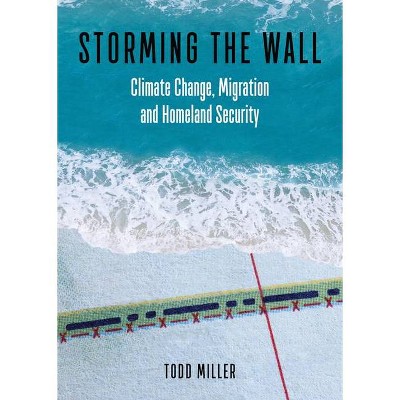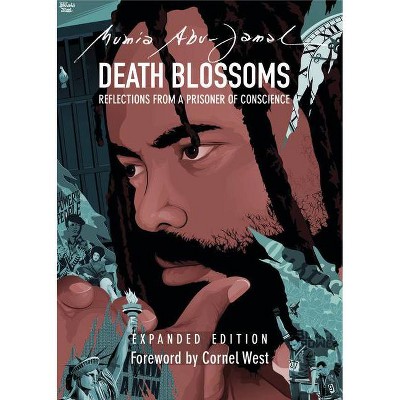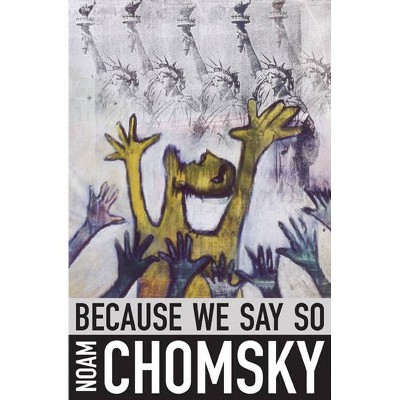I Couldn't Even Imagine That They Would Kill Us - (City Lights Open Media) by John Gibler (Paperback)
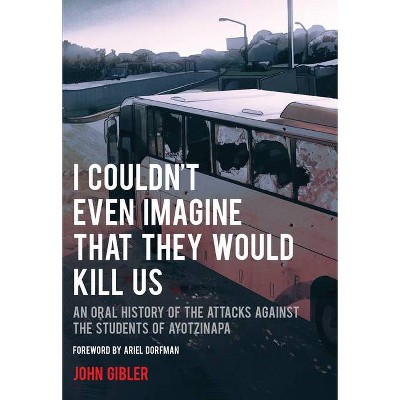
Similar Products
Products of same category from the store
AllProduct info
<p/><br></br><p><b> About the Book </b></p></br></br>Harrowing personal narratives describing how Mexican authorities killed, injured, and disappeared scores of students and others in a still-unsolved crime.<p/><br></br><p><b> Book Synopsis </b></p></br></br><p><strong>Chosen as a Best Book of 2017 by <em>Publishers Weekly</em>!</strong></p><p><strong>Harrowing personal narratives describing how Mexican authorities disappeared, killed, and injured scores of students and others in a still-unsolved crime.</strong></p> <p>Journalist Gibler's investigative prowess yields a book that uses a chorus of voices--eyewitness accounts of the students and others at the scene--to add depth and clarity to the Sept. 26, 2014, massacre of students in the city of Iguala, Mexico, that left six people dead, 40 wounded, and 43 students missing who have yet to be seen since. It's an unforgettable reconstruction of a national tragedy.<strong>--<em>Publishers Weekly</em>, Best of 2017, Nonfiction</strong></p><p>After nine months of intensive research for a book on the case of the forty-three, Gibler decided that 'what needs to be shared, urgently, are both the words and the storytelling of the people who lived through the attacks.' . . . The testimonies in <em>I Couldn't Even Imagine That They Would Kill Us </em>offer stunning evidence again and again that members of the army, as well as local and state police, helped carry out the attack.<strong>--<em>The New York Review of Books</em></strong></p><p> . . . valuable oral history . . .<strong>--<em>London Review of Books</em></strong></p><p>In Mexico, John Gibler's book has been recognized as a journalistic masterpiece, an instant classic, and the most powerful indictment available of the devastating state crime committed against the 43 disappeared Ayotzinapa students in Iguala. This meticulous, choral recreation of the events of that night is brilliantly vivid and alive, it will terrify and inspire you and shatter your heart.--<strong>Francisco Goldman</strong>, writer for <em>The New Yorker</em>, author of <em>The Interior Circuit: A Mexico City Chronicle</em></p><p>On September 26, 2014, police in Iguala, Mexico attacked five busloads of students and a soccer team, killing six people and abducting forty-three students--now known as the Iguala 43--who have not been seen since. In a coordinated cover-up of the government's role in the massacre and forced disappearance, Mexican authorities tampered with evidence, tortured detainees, and thwarted international investigations. Within days of the atrocities, John Gibler traveled to the region and began reporting from the scene. Here he weaves the stories of survivors, eyewitnesses, and the parents of the disappeared into a tour de force of journalism, a heartbreaking account of events that reads with the momentum of a novel. A vital counter-narrative to state violence and impunity, the stories also offer a testament of hope from people who continue to demand accountability and justice.</p><p><strong>John Gibler</strong> lives and writes in Mexico. He is the author of <em>Torn from the World</em>, <em>Mexico Unconquered: Chronicles of Power and Revolt</em>, <em>To Die in Mexico: Dispatches From Inside the Drug War</em>, <em>20 poemas para ser leídos en una balacera</em>, <em>Tzompaxtle: La fuga de un guerrillero</em>. His work on Ayotzinapa has been published in <em>California Sunday Magazine</em>, featured on NPR's All Things Considered, and praised by <em>The New Yorker</em>.</p><p/><br></br><p><b> Review Quotes </b></p></br></br><br><p><strong>More praise for John Gibler's <em>I Couldn't Even Imagine That They Would Kill Us: </em></strong></p><p>The hideous Ayotzinapa atrocity reveals with vivid horror how Mexico is being destroyed by the US-based 'drug war' and its tentacles, penetrating deeply into the security system, business, and government, and strangling what is decent and hopeful in Mexican society. Gibler's remarkable investigations lift the veil from these terrible crimes and call for concerted action to extirpate the rotten roots and open the way for recovery from a grim fate.--<strong>Noam Chomsky</strong></p><p>Journalist Gibler delivers a meticulous and affecting recreation of the events of Sept. 26, 2014, in Iguala, Mexico, when police attacked five buses carrying students from the Ayotzinapa Teachers' College and a youth soccer team. . . . It's a heartbreaking reconstruction of a horrific event, made all the more profound by the persistent demand from the parents of the disappeared, their classmates, and citizens across country for the safe return of the students.<strong>--<em>Publishers Weekly</em> Starred Review</strong></p><p>This is an essential work of exacting, caring, and memorializing reportage.<strong>--<em>Booklist</em>, Starred Review</strong></p><p>An oral history of one horrific night when busloads of unarmed students were attacked by local Mexican police. . . . cumulatively very moving.<strong>--<em>Kirkus Reviews</em></strong></p><p>A powerful and searing account of a devastating atrocity. Gibler's innovative style takes us on a compelling journey through a landscape of terror and brutality against those whose only crime was to demand the freedom to think.--<strong>Brad Evans</strong>, columnist on violence for the <em>New York Times </em>and the <em>Los Angeles Review of Books </em></p><p>We are fortunate to now have in English, John Gibler's courageous account and oral history of the 2014 atrocity in Mexico in which 43 students vanished from the face of the earth and remain absent, while six more people (three of them students) were found dead, one of them mutilated. The US 'war on drugs' has unleashed decades of unimaginable and hideous terrorism in Mexico, just as the 'war on terror' is doing in the Middle East. The cruel viciousness of Ayotzinapa, with the 48 families of all the disappeared, murdered, and critically wounded students insisting on answers from the Mexican government, opens the door to a powerful resistance movement, which also requires U.S. citizens to insist on ending the US war against the Mexican people, which began in the 1820s and has never abated.--<strong>Roxanne Dunbar-Ortiz</strong>, author of <em>Loaded: A Disarming History of the Second Amendment</em></p><p>The value of Gibler's book is not that he tells us or posits that that night (September 26-27, 2014) was a historical turning point. Instead, what is so astonishing is that, using documentary writing, he shows us how the protagonists of the events themselves discover suddenly that they live in a different world than the one they were used to only a few hours before. The book illustrates with precision the move from a Mexico before to a Mexico after that which we have decided to call 'Ayotzinapa.'<strong>--<em>Horizontal</em></strong></p><p>The afterword is particularly important: it clears up details of that night as well as exposes the cover-ups, tampering with evidence and lies the police and government officials at the highest levels continue to insist are fact. By pulling together all these traumatic narratives, Gibler helps the parents of the disappeared throughout Mexico say, 'Basta' (enough). They won't give up on searching for their loved ones and for the truth.<strong>--Shelf Awareness</strong></p><p>Gibler determined the story was best told through 'writing by listening, ' and here he weaves a narrative of the harrowing events through the words of the students, offering multiple points of view. The families of the missing then offer their accounts as they seek answers from the government, which was complicit not only in the attacks but in covering up the truth of what happened. The result is a raw and vulnerable glimpse into the violence that continues to affect parts of Mexico and the pain of parents who still don't know what happened to their children.<strong>--<em>Library Journal</em></strong></p> Gibler takes us through the events of the evening, giving each eyewitness a chance to add their voice. In this way the reader is placed 'on the scene, ' experiencing the confusion, terror, fear, anger, and loss along with the students and others who were attacked. It is then up to the reader to put all of the pieces together.--Afsaneh Moradian, <i>International Socialist Review</i><br><p/><br></br><p><b> About the Author </b></p></br></br><p>John Gibler lives and writes in Mexico. He is the author of <i>Torn from the World: A Guerrilla's Escape from a Secret Prison in Mexico</i><i>Mexico Unconquered: Chronicles of Power and Revolt </i>(City Lights, 2009), <i>To Die in Mexico: Dispatches From Inside the Drug War </i>(City Lights, 2011), <i>20 poemas para ser leídos en una balacera </i>(Sur+, 2012), and <i> Tzompaxtle: La fuga de un guerrillero </i>(Tusquets, 2014). He has collaborated with <i>Democracy Now!</i>, <i>Z Magazine</i>, <i>Left Turn</i>, <i>Earth Island Journal</i>, <i>NACLA Report on the Americas</i>, <i>Salamander</i>, <i>Zyzzyva</i>, <i>California Sunday Magazine</i>, <i>Periodistas de a Pie</i>, NPR's <i>All Things Considered</i>, and others.</p><p>Ariel Dorfman is a Chilean-American author whose plays (among them, <i>Death and the Maiden</i>), have been performed in over one hundred countries and his numerous books (novels, stories, poems, essays) have been translated into more than sixty languages. Accompanied by his wife Angélica, Ariel divides his time between Chile and the United States, where he is professor emeritus of literature at Duke University. A regular contributor to the most important newspapers worldwide, he will soon publish a new novel, <i>Darwin's Ghosts</i>.</p>
Price History
Cheapest price in the interval: 14.99 on December 20, 2021
Most expensive price in the interval: 15.79 on October 22, 2021
Price Archive shows prices from various stores, lets you see history and find the cheapest. There is no actual sale on the website. For all support, inquiry and suggestion messagescommunication@pricearchive.us
